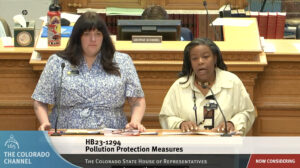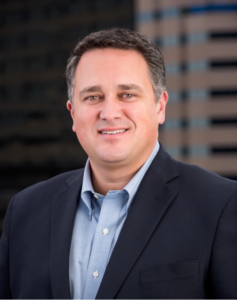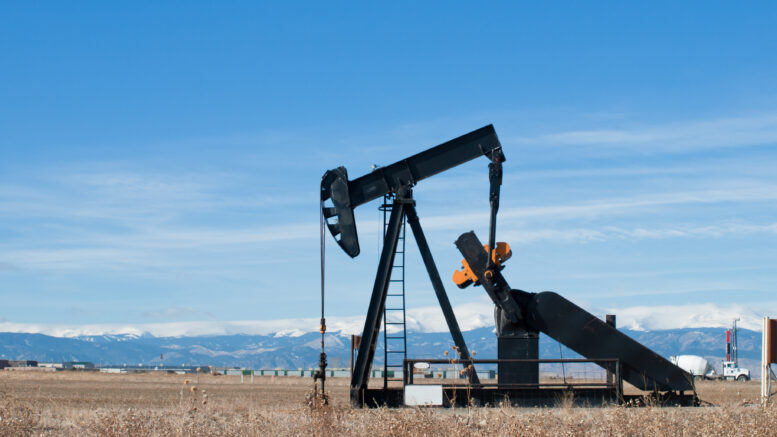Democratic legislators are preparing to introduce three bills that would make industry-redefining changes to the Colorado oil and gas sector, including a ban on new wells after 2030 and an essential shutdown of drilling activities for five months out of each year.
The sponsor of two of the three measures, Democratic Sen. Kevin Priola of Henderson, said the major steps are needed to halt climate change and to prevent what he fears could be a mass extinction of species if carbon production causes the planet to warm too much. Asked about how such measures could impact a $48 billion industry that supports more than 300,000 Colorado jobs, Priola told The Sum & Substance that legislators’ duty is to consider public health and safety above the economy.
Oil-and-gas industry leaders, meanwhile, said that the more appropriate extinction to be discussing is what could happen to their sector if it must cut back operations so severely, as well as to individual and tax revenue it generates for state residents and governments. The quick cessation of production, coming as oil and gas is needed still for everything from home heating to transportation, would require Colorado to import energy from other states or countries, a process that would generate emissions that proponents claim to be cutting, they said.
“There is career-ending language in all of these bills,” said Kait Schwartz, director of American Petroleum Institute Colorado, referring to the many workers likely to lose jobs in the sector if some or all the proposals are signed into law. “I think this is one of the first times they have been blatant enough to use the words ‘phase-out’ or ‘ban.’”
Pushed to taking such action
Priola did not shy away from that but said that as a term-limited legislator in his final year of service, he wants to pass laws that will protect state residents well after he is out of office. Scientists and policymakers elsewhere in the world have been pushing for a phase-out of fossil fuels, and the native Coloradan has found himself coughing more often and realizing that winters are becoming shorter, pushing him to take bold action.

Colorado state Sen. Kevin Priola talks about his air-quality bills in his Capitol office on Friday.
“Things aren’t the way they have been historically. And what I think most people who don’t drill down into the science of climate don’t realize is that even if tomorrow you stop putting carbon into the atmosphere, the temperature will continue to go up,” he said. “So where policy makers, in my opinion, come into play is: What can we do to minimize that?”
The most significant of the three bills, to be sponsored by Priola and Democratic Sen. Sonya Jaquez Lewis of Longmont, would bar the state from issuing new permits for oil and gas wells after Jan. 1, 2030, and require permitted wells to break ground by the end of 2032. While existing wells could continue to be plumbed, companies could not increase production by modifying old wells after 2030 as well, and reductions would be prioritized in disproportionately impacted communities.
Air-quality bill
A second, wider-ranging bill from Priola and Democratic Sen. Lisa Cutter of Morrison, would seek to reduce air pollution in a variety of ways, including:
- Pausing oil-and-gas fracking and production activities in the high-ozone season of May through September unless drillers use electric equipment that now is in limited supply;
- Codifying Gov. Jared Polis’ executive order to reduce nitrous oxide emissions — a precursor to ozone pollution — from wells 50% versus 2017 totals by 2030;
- Directing the Colorado Department of Transportation by 2025 to establish a program to reduce vehicle miles traveled, which Priola said would have to go beyond the previously failed efforts just to cut single-occupancy-vehicle trips to large employment sites;
- Creating new rules to limit emissions from indirect sources like warehouses and retail centers that attract a lot of gas-burning vehicles; and,
- Requiring all new vehicles sold in Colorado by 2035 to be zero-emissions cars and trucks.
A measure from the ozone committee

Colorado state Reps. Jenny Willford and Jennifer Bacon speak on April 29 about their bill to improve Colorado’s air-quality permitting process, which created the interim ozone committee.
Finally, a third bill from Democratic Reps. Jennifer Bacon of Denver and Jenny Willford of Northglenn would seek to put into place some of the ozone-reducing ideas discussed during the 2023 off-season by an interim committee set up to examine the subject.
An outline of the bill shows it would treat all wells in a location, including their pre-production activities, as one aggregated source of emissions for permitting consideration — a change environmental groups have said would reclassify those areas as major sources of emissions and subject them to higher regulation. However, Colorado Department of Public Health and Environment Executive Director Jill Hunsaker Ryan told a joint meeting of legislative energy committees on Jan. 17 that she didn’t think it would bump the areas up from minor-source status.
That bill also would create new requirements for minor sources to get air-quality permits in the designated ozone-nonattainment area stretching along the northern Front Range, including a mandate that they take as many emissions offline as they create. And it would require that oil and gas operators obtain an air-quality permit from the Air Pollution Control Division before the Colorado Energy and Carbon Management Commission decides whether to issue them operating permits.
Willford declined to comment on her bill, saying that she wants to wait until it is introduced to discuss it. However, Priola said that he is aware of that effort and believes it can be passed along with his plans rather than be seen as a competitor bill.
Disagreement on how much drilling could continue
Priola argued that with roughly 50,000 wells operating in Colorado right now and more to come by 2030, his proposed ban on new wells wouldn’t come close to halting production, as he said such wells could be re-fracked. He also said he and Jaquez Lewis have developed the bill independently from environmental groups that have submitted language for a ballot measure of similar intent but haven’t started collecting signatures yet.
While wells can operate for 30 years, their highest production occurs in their first 18 months, meaning the industry would begin an irreversible decline within two years of such a ban, Colorado Oil & Gas Association President/CEO Dan Haley said. That also would set the state up for massive lawsuits from property owners who could argue that its actions amount to a taking of the value of their land if they can’t use its resources, he said.

Dan Haley is president and CEO of the Colorado Oil & Gas Association
“It’s a wildly unpopular idea with Coloradans, which is why I think the activists have turned to legislators to try to pass it,” Haley said. “It sends a chilling message to all businesses across Colorado that the Legislature would take steps to phase an industry out.”
“California catch-all”
Haley referred to Priola’s other coming legislation as a “California catch-all” bill, noting that it wants to lift ideas from that state including the phase-out of new gas-powered vehicles, the adoption of off-road diesel fleet requirements and the creation of indirect source rules. No provision is more troubling, he said, than the proposed five-month shutdown of production, which would lead to layoffs and importation of fuel during high-ozone season and goes beyond proposed CECMC rules to require state authorization of summer drilling.
“I don’t know any business that can take four or five months off during a year and proceed with business as usual, whether it’s selling pizza or drilling for oil and gas,” Haley said.
Priola, however, said he’s proposing the pause for a simple reason: Because ozone pollution is highest during the summer and because the easiest way to attack it is to limit an activity that is one of the major sources of ozone production.
“If ozone was a really big problem in late fall, winter or spring, we would be proposing a drilling pause in those months. But it’s not,” Priola said. “I would think that oil and gas would want to be a part of the solution.”
More bills could impact drilling
Industry leaders and legislators have spent months debating the merits of the coming Bacon/Willford bill on air-quality regulations. Industry leaders note that regulation is so significant that the median number of days to process a permit in 2023 was 647, according to state numbers, while environmental advocates say that current regulations haven’t limited bad-ozone days or respiratory illnesses in many communities.
The new trio of bills, which are expected to be introduced over the next month, come in addition to a rumored bill that seeks to end the tax exemption on stripper wells, the lower-producing wells that many companies operate years into a drilling site’s life. And they come in addition to a bill that CDPHE leaders have said they plan to introduce that would give local communities more opportunities to veto any drilling site or emissions-producing factory that could boost pollution and that would lead to new regulations on oil refineries.
It’s unknown yet where Polis will stand on any of the proposals. But during debate last year on House Bill 1294 — the bill that created the ozone study committee — officials from the Polis administration said that imposition of many of the proposed new air-quality-permitting regulations would slow the state’s existing efforts to cut air pollution.
